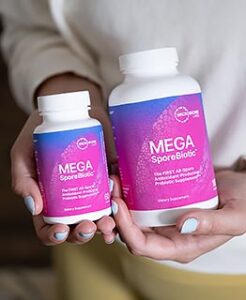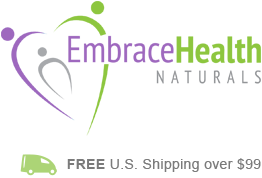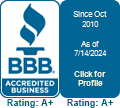
>> MegaSporeBiotic Trusted by Over 20,000 Medical Professionals
>> Michelle’s MegaSporeBiotic Healing Experience
>> Bacillus Spores are Natural Residents of the Gut
>> Proven Safety and Effectiveness
>> How MegaSporeBiotic Can Help You
Trusted by Over 20,000 Medical Professionals since 2012
For over a decade, MegaSporeBiotic has been the probiotic of choice of more than 20,000 medical doctors, naturopaths, registered nurses, health coaches and other healthcare practitioners. MegaSporeBiotic is also the top selling probiotic at FullScript.com, the leading holistic prescription filler.
Michelle’s MegaSporeBiotic Healing Experience
Michelle should write an outline only, and Les will word smith the text.
Bacillus Spores are Natural Residents of the Gut
Bacillus species are a natural and healthy part of your gut microbiomexxx1xxx. Bacillus are present in large numbers in the intestines of both animals and humans and evidence suggests they have been there for eons of time. Certain Bacillus species act as commensal organisms in humans and animals, meaning they are normal residents of the human gut that are supposed to be there.
xxx1xxx Hong HA, To E, Fakhry S, Baccigalupi L, Ricca E, Cutting SM. Defining the natural habitat of Bacillus sporeformers. Research in Microbiology. 2009;160(6):375-379. 1a.
Proven Safety and Effectiveness
MegaSporeBiotic was carefully formulated by a collaboration of microbiologists, doctors, and researchers, with careful attention paid to the safety and scientific rationale of the strains or species used. The safety and effectiveness of each strain in MegaSporeBiotic were evaluated based on results from in vivo studies and well-documented controlled safety trials. And each batch of MegaSporeBiotic is rigorously tested to ensure the proper Bacillus species are present and the product meets strict quality control standards.
MegaSporeBiotic is both natural and safe***10***. All five strains of Bacillus are found in nature and are a normal part of the human digestive tract. They have a place in each person’s unique microbiome, so they will bind and colonize in the intestine of every person.
MegaSporeBiotic performs a variety of healing and infection-fighting functions in the body. This unique formula reconditions the gut by increasing microbial diversity and encouraging the growth of key health-promoting gut bacteria.***12***. Studies show that these Bacillus species are effective in preventing a range of different infections, including UTIs, Candida, upper-respiratory infections and other chronic bacterial and yeast infections***15***.
***10***. Hong HA, To E, Fakhry S, Baccigalupi L, Ricca E, Cutting SM. Defining the natural habitat of Bacillus sporeformers. Research in Microbiology. 2009;160(6):375-379.
***12*** Duysburgh C, et al. A synbiotic concept containing spore-forming Bacillus strains and a prebiotic fiber blend consistently enhanced metabolic activity by modulation of the gut microbiome in vitro. Int J Pharmaceutics: X. 2019;1:100021
***15*** Stein T. Bacillus subtilis antibiotics: structures, syntheses and specific functions. Molecular Microbiology. 2005;56(4):845-857.
How MegaSporeBiotic Can Help You
MegaSporeBiotic Arrives Alive in Your Gut!
95% of so-called probiotics on the market are unable to produce significant shifts in gut health, due to poor survivability in your stomach and weak colonization in the G.I. tractxxx2xxx. Popular Lactobacillus or Bifidobacteria probiotics are killed by stomach acid, so only a small amount survive and make it into your gut.
But the Bacillus species inside MegaSporeBiotic have a strong natural outer shell called a spore. Spores protect the probiotic from light, heat and other environmental factors that kill most other probiotics before you even take them. Bacillus probiotics can change from their dormant spore form to their live, active form depending on the environment. Spores allow Bacillus probiotics to maintain their potency and effectiveness during storage and through the harsh acid in your stomach. So Bacillus spores survive 100% intact and fully potent as they pass through your stomach on the way to the intestines xxx11xxx.
xxx2xxx The Food Standards Agency, study by Reading University (Dr. G.R.Gibson, Dr., G. Rouzaud, Dr. J. Brostoff and Dr. N. Rayment) in the United Kingdom to evaluate the probiotic effect of commercial products in the human gut, and whether there was any impact on gut flora. The study evaluated the survivability of common probiotics through the gut, examining 35 strains from commercial products, primarily Lactobacillus sp. and Bifidobacterium sp.
xxx11xxx. Suva MA, et al. Novel insight on probiotic Bacillus subtilis: Mechanism of action and clinical applications. Jour Curr Res in Sci Med. 2016; 2(2):65-72.
Targeted Support for Gut Infections
For decades, Bacillus probiotics have been used widely around the world for fighting off intestinal pathogens, antibiotic associated diarrhea and improving immune system function. Bacillus spores shift gut conditions to favor the healthy bacteria and repel the bad bacteria. They encourage the increase of healthy compounds in the gut like short-chain fatty acids that help heal damaged intestines and reduce intestinal inflammation. These traits make Bacillus strains excel at mending gut dysbiosis and infections like C. difficile. Below are some key Bacillus benefits:
- Bacillus coagulans improves C. difficile colitis symptoms, reduces colon inflammation, provides better stool consistency and improves C. diff. outcomes***6***.
- Bacillus coagulans reduces recurring C. diff. infections after vancomycin treatment***7***.
- Bacillus clausii makes the antimicrobial compound clausin that inhibits C. difficile and other Gram-positive bacteria***8***.
- Bacillus clausii creates an enzyme that helps break apart C. difficile toxins, resulting in a strong protective effect against intestinal damage***9***.
- Bacillus subtilis HU58 produces over a dozen targeted antimicrobial substances on site in the GI system, targeting harmful gut bacteria***25***.
- Bacillus subtilis HU58 reduces diarrhea caused by infections or antibiotic drugs***24***
- Supports and boosts the immune system in multiple ways***38***.
- Reduces gut tissue inflammation***39***.
***6***. Bacillus Coagulans GBI-30 (BC30) improves indices of Clostridium difficile-Induced colitis in mice. Fitzpatrick L, Small J, Greene W, Karpa K, Keller D. Gut Pathog. 2011; 3: 16
***7***. Bacillus coagulans GBI-30, 6086 limits the recurrence of Clostridium difficile-Induced colitis following vancomycin withdrawal in mice. Fitzpatrick L, Small J, Greene W, Karpa K, Farmer S, Keller D. Gut Pathog. 2012; 4: 13.
***8***. Probiotics for Prevention of Clostridium difficile Infection. Mills J, Rao K, Young V. Curr Opin Gastroenterol. 2018 Jan; 34(1): 3–10.
***9***. Secreted Compounds of the Probiotic Bacillus clausii Strain O/C Inhibit the Cytotoxic Effects Induced by Clostridium difficile and Bacillus cereus Toxins. Ripert G. et al. Antimicrob Agents Chemother. 2016 Jun; 60(6): 3445–3454.
***24***. Suva MA, et al. Novel insight on probiotic Bacillus subtilis: Mechanism of action and clinical applications. J Curr Res Sci Med. 2016; 2(2):65-72.
***25***. Stein T. Bacillus subtilis antibiotics: structures, syntheses and specific functions. Molecular Microbiology. 2005;56(4):845-857.
***38***. Barnes AG, et al. Bacillus subtilis spores: A novel microparticle adjuvant which can instruct a balanced Th1 and Th2 immune response to specific antigen. Eur J Immun 2007;37:1538‐47.
***39***. Racedo S. et al. Probiotic Bacillus subtilis CU1 Normalize the Mucosal Immune Responses and Microbiota Balance in a Murine Model of Dysbiosis. 15th International Congress of Mucosal Immunology (ICMI 2011) Abstract Supplement; 5‐9 July, 2011. p. 151.
Link to a new MegaSpore success stories page (add newest testimonials)
Try it for yourself (protocol and product link)
Debunking the naysayers (link to safety page)
References and Studies
Below is a list of studies on Bacillus spores, which are found inside MegaSporeBiotic, RestorFlora and HU58. Bacillus spores and the Saccharomyces boulardii species have been used safely for decades in probiotic products around the world and they are not new to the Microbiome Labs products. Also note that while scientific studies are important, it’s equally important that a food, supplement or ingredient have a long history of safe and effective use in day to day clinical settings between real doctors and their patients.
Fortunately, there has been much research on Bacillus spores in general and on MegaSporeBiotic in particular. But just as important and valuable are the real-world effects that this and other products are having in people. The following references on probiotics, Bacillus spores and Saccharomyces boulardii come from chapter 4 of Michelle’s book C. difficile Treatment & Remedies:
- A framework for human microbiome research, The Human Microbiome Project Consortium, Nature 486, 215–221 (14 June 2012).
- Host-Pathogen Interactions: the seduction of molecular cross talk, J. Gut 2002;50:32.
- Recommendations for probiotic use – Floch et al, J Clin Gastroenterol. 2008 Jul.
- Probiotics for the prevention of Clostridium difficile-associated diarrhea in adults and children, Joshue Z Goldenberg et al, 31 MAY 2013 The Cochrane Library.
- Timely Use of Probiotics in Hospitalized Adults Prevents Clostridium difficile Infection: A Systematic Review With Meta-Regression Analysis. Shen NT et al. Gastroenterology. 2017 Jun;152(8):1889-190.
- Validating bifidobacterial species and subspecies identity in commercial probiotic products, Lewis ZT, Pediatr Res. 2016 Mar;79(3):445-52.
- Pathogen elimination by probiotic Bacillus via signalling interference. Pipat P., Yue Z., Thuan N., Seth D. et el. Nature, 2018. Chapter 14 – Probiotics 201.
- Oral spore-based probiotic supplementation was associated with reduced incidence of post-prandial dietary endotoxin, triglycerides, and disease risk biomarkers. Brian K McFarlin. World J Gastrointest Pathophysiol 2017 August 15; 8(3): 117-126.
- Bacillus Coagulans GBI-30 (BC30) improves indices of Clostridium difficile-Induced colitis in mice. Fitzpatrick L, Small J, Greene W, Karpa K, Keller D. Gut Pathog. 2011; 3: 16.
- Bacillus coagulans GBI-30, 6086 limits the recurrence of Clostridium difficile-Induced colitis following vancomycin withdrawal in mice. Fitzpatrick L, Small J, Greene W, Karpa K, Farmer S, Keller D. Gut Pathog. 2012; 4: 13.
- Probiotics for Prevention of Clostridium difficile Infection. Mills J, Rao K, Young V. Curr Opin Gastroenterol. 2018 Jan; 34(1): 3–10.
- Secreted Compounds of the Probiotic Bacillus clausii Strain O/C Inhibit the Cytotoxic Effects Induced by Clostridium difficile and Bacillus cereus Toxins. Ripert G. et al. Antimicrob Agents Chemother. 2016 Jun; 60(6): 3445–3454.
- Probiotic strain Bacillus subtilis CU1 stimulates immune system of elderly during common infectious disease period: a randomized, double-blind placebo-controlled study. Lefevre M, Racedo SM, Ripert G, et al. Immun Aging. 2015;12:24.
- A randomized placebo-controlled trial of Saccharomyces boulardii in combination with standard antibiotics for Clostridium difficile disease. McFarland LV, Surawicz CM, Greenberg RN, Fekety R, Elmer GW. JAMA. 1994 Jun 22-29;271(24):1913-8.
- A randomized placebo-controlled trial of Saccharomyces boulardii in combination with standard antibiotics for Clostridium difficile disease, McFarland LV, JAMA 1994 Jun 22-29; 271(24):1913-8.
- Saccharomyces boulardii inhibits Clostridium difficile toxin A binding and enterotoxicity in rat ileum. Pothoulakis et al, Gastroenterology. 1993 Apr;104(4):1108-15.
- Probiotics in the prevention of antibiotic-associated diarrhoea and Clostridium difficile infection. Hickson M. Therap Adv Gastroenterol. 2011 May; 4(3): 185–197.
- Saccharomyces boulardii Stimulates Intestinal Immunoglobulin A Immune Response to Clostridium difficile Toxin A in Mice. Qamar et al, Infect Immun. 2001 Apr; 69(4): 2762–2765.
- Saccharomyces boulardii protease inhibits Clostridium difficile toxin A Chapter 14 – Probiotics 202 effects in the rat ileum. Castagliuolo et al. Infect Immun. 1996 Dec;64(12):5225-32.
- Review article: Anti-inflammatory mechanisms of action of Saccharomyces boulardii. Pothoulakis, C. Aliment Pharmacol Ther. 2009 Oct 15; 30(8): 826–833.
- Effect of biotherapeutics on cyclosporin-induced Clostridium difficile infection in mice. Kaur et al. J Gastroenterol Hepatol. 2010 Apr;25(4):832-8.
- Lactobacillus acidophilus CL1285, Lactobacillus casei LBC80R, and Lactobacillus rhamnosus CLR2 (Bio-K+): Characterization, Manufacture, Mechanisms of Action, and Quality Control of a Specific Probiotic Combination for Primary Prevention of Clostridium difficile Infection. Auclair et al. Clinical Infectious Diseases, Volume 60, Issue suppl_2, 15 May 2015, Pages S135–S143.
Bacillus Specific Studies
- Defining the natural habitat of Bacillus spore-formers, Huynh A. Hong et el, Research in Microbiology 160 (2009) 375e379
- Bacillus probiotics – Mechanism of action and use. Simon M. Cutting, Professor of Molecular Microbiology, School of Biological Sciences, Royal Holloway, University of London. Protexin Healthcare.
- The use of bacterial spore formers as probiotics, FEMS Microbiology Reviews 29 (2005) 813–835
- The safety of Bacillus subtilis and Bacillus indicus as food probiotics, Journal of Applied Microbiology ISSN 1364-5072
- The Intestinal Life Cycle of Bacillus subtilis and Close Relatives, JOURNAL OF BACTERIOLOGY, Apr. 2006, p. 2692–2700 Bacillus probiotics, Food Microbiology 28 (2011) 214e220
- Characterization of Bacillus Species Used for Oral Bacteriotherapy and Bacterioprophylaxis of Gastrointestinal Disorders, APPLIED AND ENVIRONMENTAL MICROBIOLOGY, 0099-2240/00/$04.0010, Dec. 2000, p. 5241–5247
- Bacillus Probiotics: Spore Germination in the Gastrointestinal Tract, APPLIED AND ENVIRONMENTAL MICROBIOLOGY, May 2002, p. 2344–2352
- Pathogen elimination by probiotic Bacillus via signalling interference, https://doi.org/10.1038/s41586-018-0616-y
- Bacillus subtilis antibiotics: structures, syntheses and specific functions, Molecular Microbiology (2005) 56(4), 845–857
- Immunostimulatory activity ofBacillus spores, FEMS Immunol Med Microbiol 53 (2008) 195–203
- Efficacy of Bacillus clausii spores in the prevention of recurrent respiratory infections in children: a pilot study, Therapeutics and Clinical Risk Management 2007:3(1) 13–17
- Effect of Bacillus subtilis spore administration on activation of macrophages and natural killer cells in mice, Veterinary Microbiology 60 1998 215–225
- The effect of Probiotic Bacillus subtilis HU58 on Immune function in Healthy Human, The Indian Practitioner q Vol.70 No.9. September 2017




